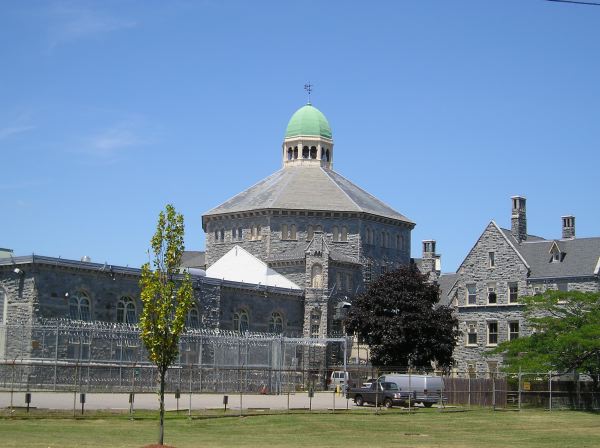 Zero-tolerance policies were introduced into public schools in the 1990s, due to the rising rates of juvenile violence, according to the article, “The criminalization of school discipline in the USA”, by Paul Hirschfield. This zero-tolerance policy, he writes, also led to the importation of the criminal justice system into schools as a means of crime control.
Zero-tolerance policies were introduced into public schools in the 1990s, due to the rising rates of juvenile violence, according to the article, “The criminalization of school discipline in the USA”, by Paul Hirschfield. This zero-tolerance policy, he writes, also led to the importation of the criminal justice system into schools as a means of crime control.
In light of this dynamic, students get arrested for minor offenses, like simple assault, that were once handled internally by high school authorities. One former high school student, who was in maximum security prison when this article was published says his, “school was more like a prison than a high school. It don’t have to be nothing illegal about it. But you’re getting arrested. No regard for if a college going to accept you with this record. No regard for none of that, because you’re not expected to leave this school and go to college. You’re not expected to do anything.”
Students are pushed to the limit with little or no breathing space, no second chances, and no regard for whether these policies have helped kids to drop out of school with no direction in life. They are still supposed to be tomorrow’s elders in an ever-evolving society. However, it is important that society put in place some kind of disciplinary practices to instill moral and civic virtues, but equally important that this is done in a manner that does not marginalize kids and force them to choose between the choices that could send them to juvenile prison and further incarceration in the adult prison system, leading to conditions that deprive them from being productive and functional citizens.
In as much as I believe in maintaining security in school premises, I also believe that the society and the politicians could do a better job by giving students a second chance if they really want them to succeed in life. Parent-Teacher Associations (PTAs) could be instrumental in this front. It is my profound belief that if parents are involved to help curtail their kids’ behavioral problems in school, that would have been more fruitful than dogs, metal detectors and the criminal justice systems. I know if my mother got a call from the school about my misconduct, it would be a profound deterrent. Most kids listen to their mothers’.
The PTA method of discipline could ensure that authorities and parents work hand in hand to model students’ behavior in a better way, instead of victimizing them. To this end, parents got called most of the time when the punishment is handed down to the student and the parent is left with a choice of trying to make the kid stay out of prison, instead of trying to make them stay in school. The PTA could put misbehaving student on probation, supervised by both school offices and the parent, leaving the state out of the equation at this point in time.
The state authorities should focus on helping students succeed in their education, and not to supplement school policies that remove underperforming students with the notion that they are not salvageable – especially not in the name of school accountability. These and other policies prove that the authorities value money more than they value students’ education. All of which takes the form of removing underperforming or disruptive students, which proved to be a cheaper alternative to renovating and modernizing schools and hiring more qualified teachers and counselors.
It’s the poor, the destitute, and in most cases the minority students who pay the highest price for misbehaving in the face of these measurements, under the perception of them not deserving good schools, socio-economic development, good representation, coupled with policies that criminalize students with behavior problems as a means of crime control.
- This post is published as part of the Prison Op/Ed Project, an occasional series authored by CCRI sociology students who are incarcerated at the Rhode Island Adult Correctional Institute. Read more here:
- ‘Prison Op/Ed Project’ teaches civic engagement, writing – Meghan Kallman
- Does racial injustice still exist? Look at our schools – Aaron Carpenter
- Rhode Island charges felons absurdly high court costs – Christopher Nemitz
- Public school students and inmates need more vocational training – Darnell Hie
- Prison policies put probation and vocational training at odds – Norman Johnson
- Corporate-modeled prison industrial complex doesn’t serve society – Adrian Rojas
- Incarceration is the new slavery – James Poston
- Justice isn’t blind with data-based sentencing – David Brown
- Ending welfare entitlements opened the door to disability fraud – Dan Davidson
- Post prison services would stem system’s revolving door – Michael Wheelock
- You’re vote doesn’t matter as much as your money – David Brown
- How schools emulate prisons, and prepare students for them – Richard Pimiental
- Cars that are good for society – David DeGrasse
